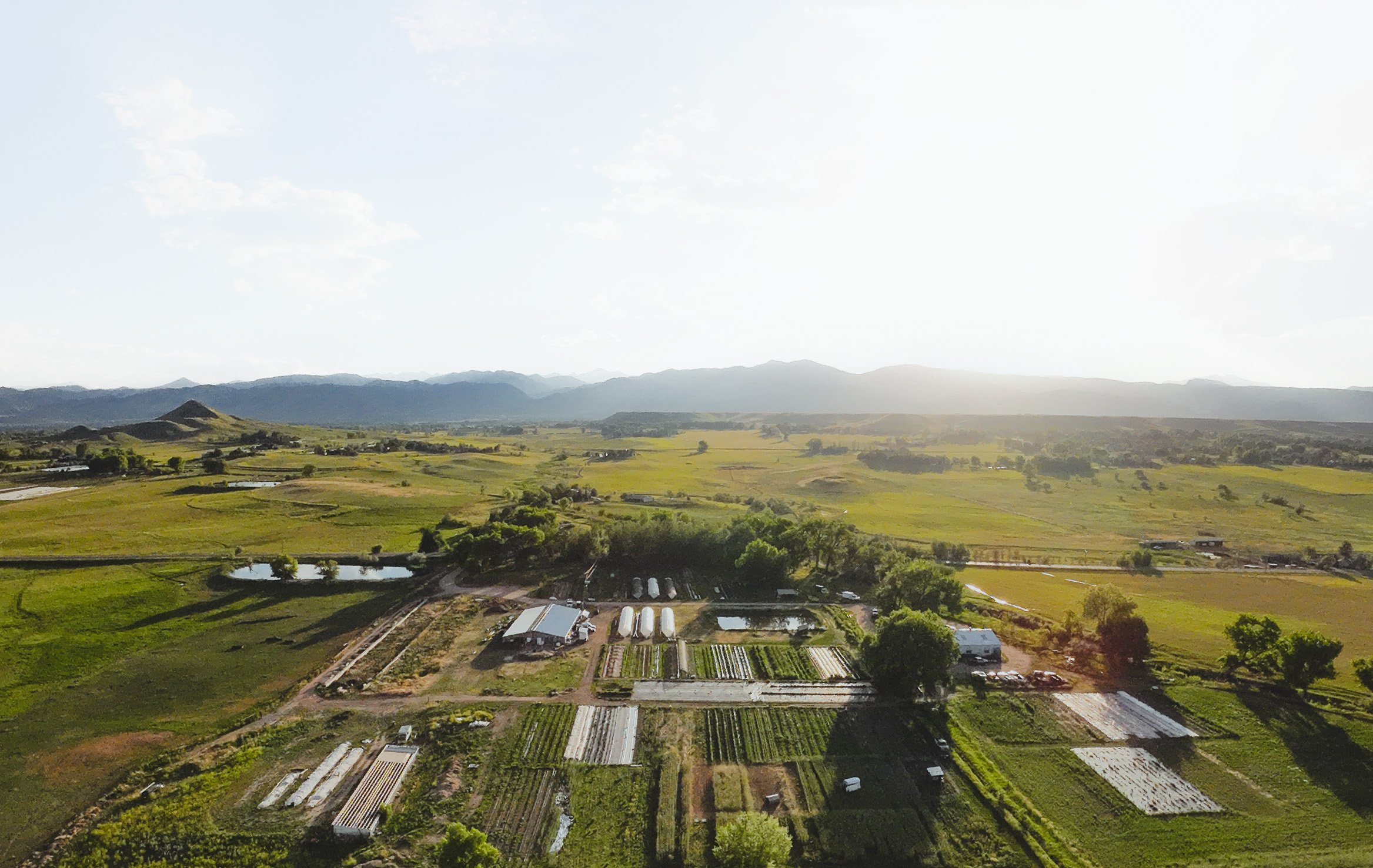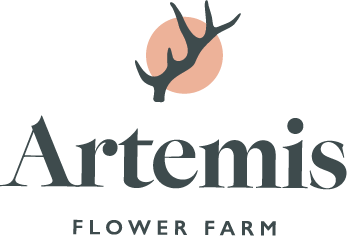
Who We Are
Hi there! Nice to meet you.
Artemis Flower Farm is an ecology-focused
cut flower farm serving Boulder, Lyons, Longmont, Berthoud, and the Colorado Front Range.
Read about our name and our ethos on the blog.
Helen Skiba, Owner
Helen Skiba is a Colorado native, former English major, and returned Peace Corps Volunteer. She is a dedicated grower and tender of soil, and brings a background in soil science and poetry to her field work, as well as a passion for intricate color and texture in her designs. Helen developed her design style over many years of wedding design, but she also enjoys making a super-efficient market bouquet. She holds a Master’s of Agriculture from Colorado State University, where she completed her thesis in combination with her Peace Corps service in an indigenous community in the Ecuadorian Amazon. She's a spreadsheet Queen 👑 and also a member of the Fraternal Order of Grammar Police. Helen serves as the Regional Director for the South and Central Region of the Association of Specialty Cut Flower Growers (ASCFG), helping others create strong, sustainable farm businesses.
Nelson Esseveld, Owner
Nelson Esseveld is a graphic designer, essential-oil-distiller, professional photographer, culinary and medicinal herbsman, and an accomplished chef. His family has been importing tulips and other bulbs from the Netherlands for over 70 years. Nelson loves being part of Artemis, and the Treehouse Farm Collective, by harvesting and planting flowers, doing the heavy lifting, creating our branding and images, and using his fine-toothed comb to iron out every detail. He is the reason things look halfway decent around here, and the reason Helen doesn’t die of hunger or subsist on a diet of frozen peas.
Farming
We are a passionate young farmers with an exuberant love for the land. We grow unique and hard-to-find varieties for wedding work, flower share members, and local businesses. We are committed to organic techniques, reducing the waste so common in the floral industry (we no longer use any floral foam), and to our stewardship of the land. We seek out new ways to bring health to the soil, through limited tillage, cover crops, and animal integration.
Design
Our design favors wild, loose, organic-looking bouquets and arrangements that arch and sweep out of their containers, calling attention to the complex designs of nature herself. Because we grow our own material, we are intimately familiar with how the plant grows, and how it looks its best. We can go out to the field for that extra special something, and save that one perfect flower for exactly the right spot, and for the right person. We love crafting pieces that embody the spirit of the season.

Our Beautiful Farm
We grow and design at the Treehouse Farm Collective, just north of Boulder and west of Longmont, Colorado, where we share land with our farm family: Cody and Melissa of Speedwell Farm & Gardens, Brian DeCorte of Ver de Terre Vermicompost, and The Tool Library.
In the videos below, you can see us all chat about how that works, and how we got here.
What is an Ecology-Focused Farm?
No-Till Flower Farming
Helen Skiba chats with Jackson Rollett of No-Till Growers about Artemis Flower Farm’s farming practices: no-till on clay soils, integrating cover crops, no-till in flower production, intercropping with cover crops, mulching, fertilizing cautiously, and more.
Farm Practices
An ecology-focused farm pays attention to the interconnections that allow us to grow our flowers. We make space for all the living creatures that make their home on the land we cultivate, whether they are nematodes, spiders, Say’s phoebes, bobcats, earthworms, bumblebees, foxgloves, or humans. We use homemade biological amendments from Korean Natural Farming to add nutrients and native organisms to our soils, limiting inputs from outside the farm. We use vermicompost produced here on the farm by Ver de Terre, one of the Collective members. We avoid pesticide use with IPM methods like cultivation, physical exclusion, and supplementing our farm’s ecosystem with insect predators like green lacewings, predatory wasps, and ladybugs. We are a no- and low-till farm, limiting disturbance of our soils so that the bacteria, archaea, and fungi have a chance to build their homes and create ideal plant growing conditions. We practice as much cover cropping, mulching, and animal integration as possible on our small scale, always seeking to protect our soils the way grass did when this land was native prairie.
More Podcasts
By growing over 100 species of flowers, we invite diversity to our farm and provide nectar sources not only for honeybees, but for native bees, wasps, butterflies, and hummingbirds. We plant native and ornamental perennials to hold soil, provide overwintering habitat for birds, and to create windbreaks and microclimates on the farm. We use drip irrigation to limit evaporation and water use. We buy long-lasting materials for the farm like woven landscaping fabric, instead of thin-film plastic mulch, canvas sandbags instead of flimsy plastic ones, and invincible Winstrip seedling trays over thin plastic ones that need to be trashed every year. In our studio, we use rental vases to avoid the massive waste common in the wedding industry, as well as durable mechanics like chicken wire and flower frogs in place of carcinogenic and micro-plastic producing floral foam. Any packaging is compostable or recyclable, from the tape we use to package our bulb and tuber boxes, to the cards in our bouquets.
We believe our people practices are sustainable, too. As part of the Treehouse Farm Collective, we are creating an interdependent web of farmers and communities that, because of its diversity and depth, is strong and resilient. We strive to give our employees the best working environment possible and cultivate a farm workplace that values and protects, rather than exploits, the passion of young people for nature, farming, and a truly regenerative world. By inviting customers to the farm for dinners, workshops, and flower pick ups, we help human beings build connections to the landscape and ecosystems where they live, and to revel in the beauty, strength, and meaning of the land.
Seed Saving
Helen explains how she integrates saving flower seed into her production field for on-farm use, how and why she chooses to save certain varieties, and everything about dahlia tuber propagation and sales.
Collective Farming
The Treehouse Farm Collective discusses land access and our model that respects both pre-existing individual farm business autonomy, while reaping many of the benefits of farming closely with others. Shout out to collective members Nelson and Matt who were present in spirit.
Six Figure Flower Farming with Jenny Marks: Helen discusses getting her start and lessons learned along the way.
The Backyard Bouquet: Helen discusses becoming a mother and what that means for the farm.













